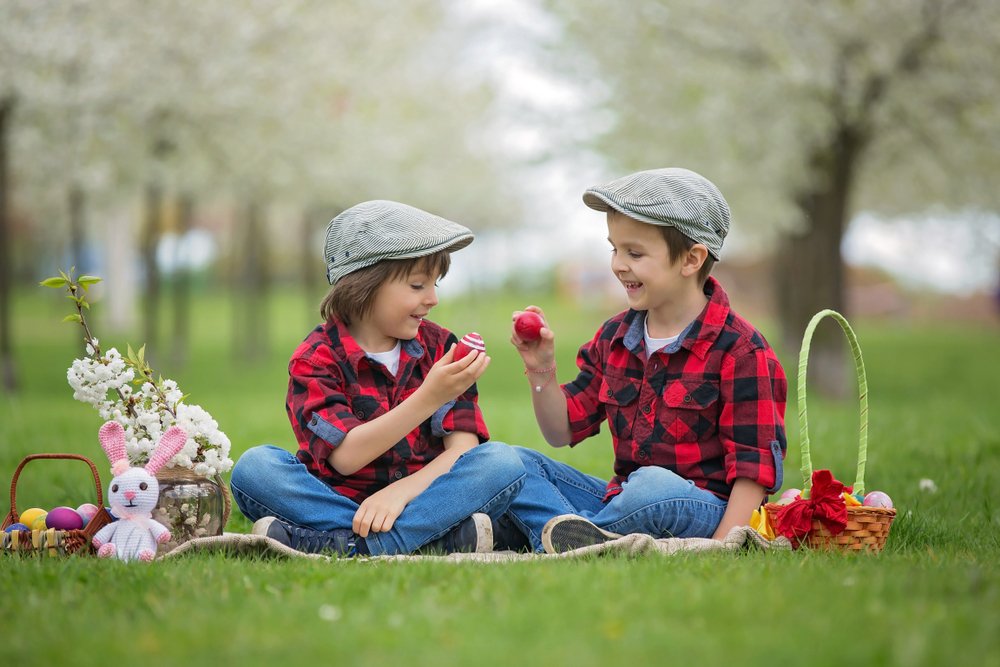Key points:
- Having difficulties with sharing is a part of every child’s developmental process.
- Sharing is a fundamental skill that teaches compromise, fairness, and gratitude.
- Babies experience compassion and empathy from an early age, laying the foundations for sharing.
- Modeling sharing behavior, encouraging communication, and acknowledging feelings are effective strategies for teaching children to share.
Having difficulties for sharing is part of every kid’s developmental process. In fact, the word “mine” is one of the first words to come out of a toddler’s mouth. During your kid’s second and third year, they will experience going from oneness to separateness, so you’ll start noticing comments like “This is mine!”, “I can do it myself”, etc. This is due to their growing self-awareness. So, don’t worry, there are a lot of ways you can help your child understand the concept of sharing. Keep reading to learn more!
Sharing is caring?
Sharing is a fundamental skill; it is how we keep our friendships, play, and work well with others. This action teaches about compromise, fairness, and, most importantly, gratitude. “Thank you for sharing your truck with me. Do you want to play with my teddy bear?”. Sharing teaches children that gratitude reciprocates. If we give to others, we will receive in return. Gratitude is the best policy. Sharing also teaches us about negotiation and coping with disappointment, two vital skills in life.
A little background
After your baby is born, they start experiencing the foundation of compassion. Hearing another baby cry or feel the stress of the people that surround them causes your little one to become distressed. Even though they can’t say it, they feel what the other baby is feeling. So, your baby perceives and experiments compassion and precursors of empathy since they are very little. Until, at 18 months old, they become aware that other people have feelings that are different from their own. Sharing implies empathy and, even though your child won’t experience true empathy until they are 6 years old, they will start developing and showing signs of it very early in life.
Forming attachments
Your toddler will become attached to things as well as people. You might notice that they have trouble sharing their favorite teddy bear or even their least favorite toy. Studies reveal that children who received secured attachment parenting during the first two years are more likely to share in the years to come. Why is this? When you have a strong secure relationship with your child, they know they can count on you for emotional and physical support. This makes them more likely to sympathize and offer help to others too. This also helps them become less attached to material things.
Monkey see, monkey do!
Since they are little, your child perceives what their parents and family members are doing. Children who are raised on the receiving end of a generosity model are more likely to follow that same dynamic with others. If your little one sees you sharing and being affectionate with another person, they’ll imitate this behavior with the people around them.
More of the positive, less of the negative
Toddlers do a lot of “mockup sharing”-showing an object to people and letting them use it without actually letting go. This is a big step towards sharing. Praise your child by saying things like “That’s so nice of you, thank you for showing your car to aunt Lily”. It’s better to use positive reinforcements and be generous, than punish and take things away. If your child doesn’t feel like sharing, don’t punish them for it; they are just acting their age and learning the process. Instead, praise their efforts and, little by little, they’ll soak in the positive reinforcements and feel good repeating the actions that make others happy. Soon enough, sharing will come second nature to them.
What can you do to introduce and practice the concept of sharing?
- Be affectionate with your child and all family members: expressing affection is a form of showing you care for the other person.
- Practice back and forth playing: “Your turn, my turn”, “Here’s the red play-dough, can I have some of the blue?”.
- Share with them and your partner in everyday situations: “I made popcorn, do you want some?”, “We made room for you, come sit with us”.
- Give them some blocks or toys and ask them to share them with the people in the room and hand them out: “Give one to daddy and one to mommy.” Do the same exercise yourself.
- Role play with puppets: this is great way for your child to explore other peoples’ feelings.
- Encourage communication and acknowledge feelings: ask your partner in front of your kid “How are you feeling today?”, then ask your kid. You can also point out feelings in others “Look at that kid on that swing, they look really happy!”.
- Play games that don’t have a lot of rules and that don’t have a single winner.
- Share everyday stuff: “Let’s eat this banana, you can have half of it and I can have the other half”.








